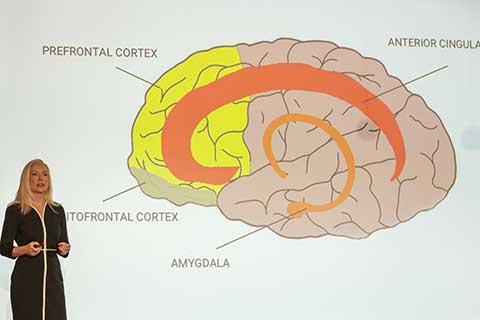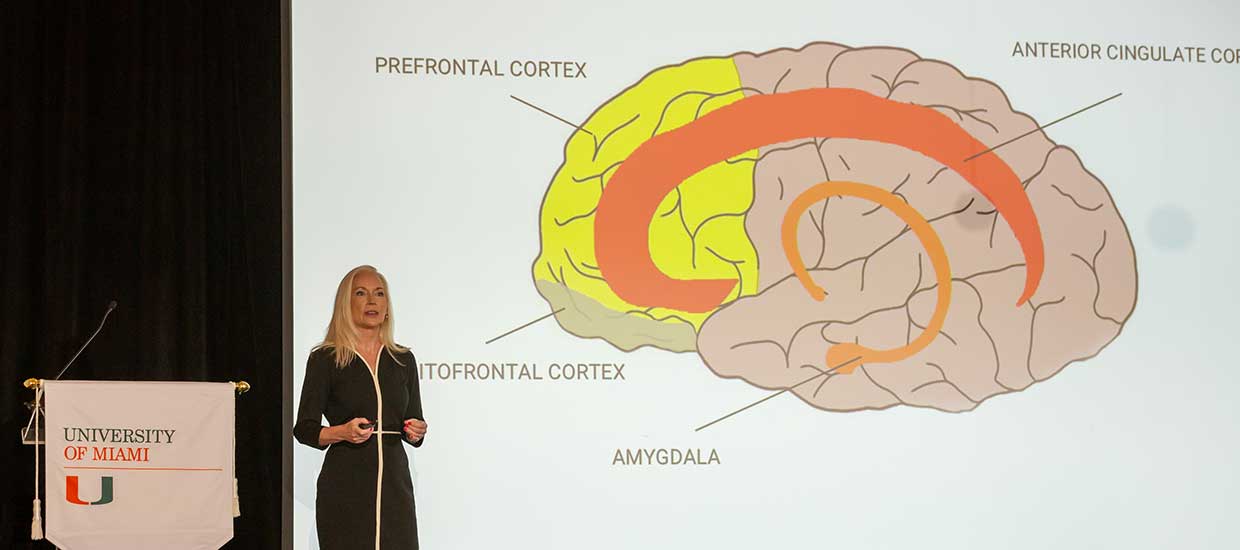This portion of the degree curriculum is based on the clinical and research paradigm known as Neurologic Music Therapy (NMT). This model utilizes scientific evidence regarding the influence of music on the human brain and behavior function to treat neurological, developmental, and medical needs. All three members in the Frost School of Music are NMT-trained and have conducted research following the NMT model.
In the first year of the program, students complete two sequential graduate seminars that help to establish a strong scientific basis for NMT practice and generate ideas for independent research. The first seminar, MED 729 Advanced Music Therapy Practice I, focuses on research examining music, cognition, and affect. In the second seminar, MED 730 Advanced Music Therapy Practice II, students explore research regarding music, speech and language, and sensorimotor functioning. Students must read and discuss research literature, and apply findings to clinical situations.
Additional credit hours in this component of the degree (i.e., 12 hours) are devoted to the student’s Specialty Area. Courses are carefully selected via extensive collaboration between the student and music therapy faculty. Students use these 12 credit hours to establish proficiency in a certain area of research and/or clinical practice. Many times, courses are taken in other areas of the university, such as psychology, neuroscience, or education.
As part of the music therapy emphasis, students also have the opportunity to explore issues relevant to future careers in teaching music therapy and supervising music therapy students in clinical settings.





